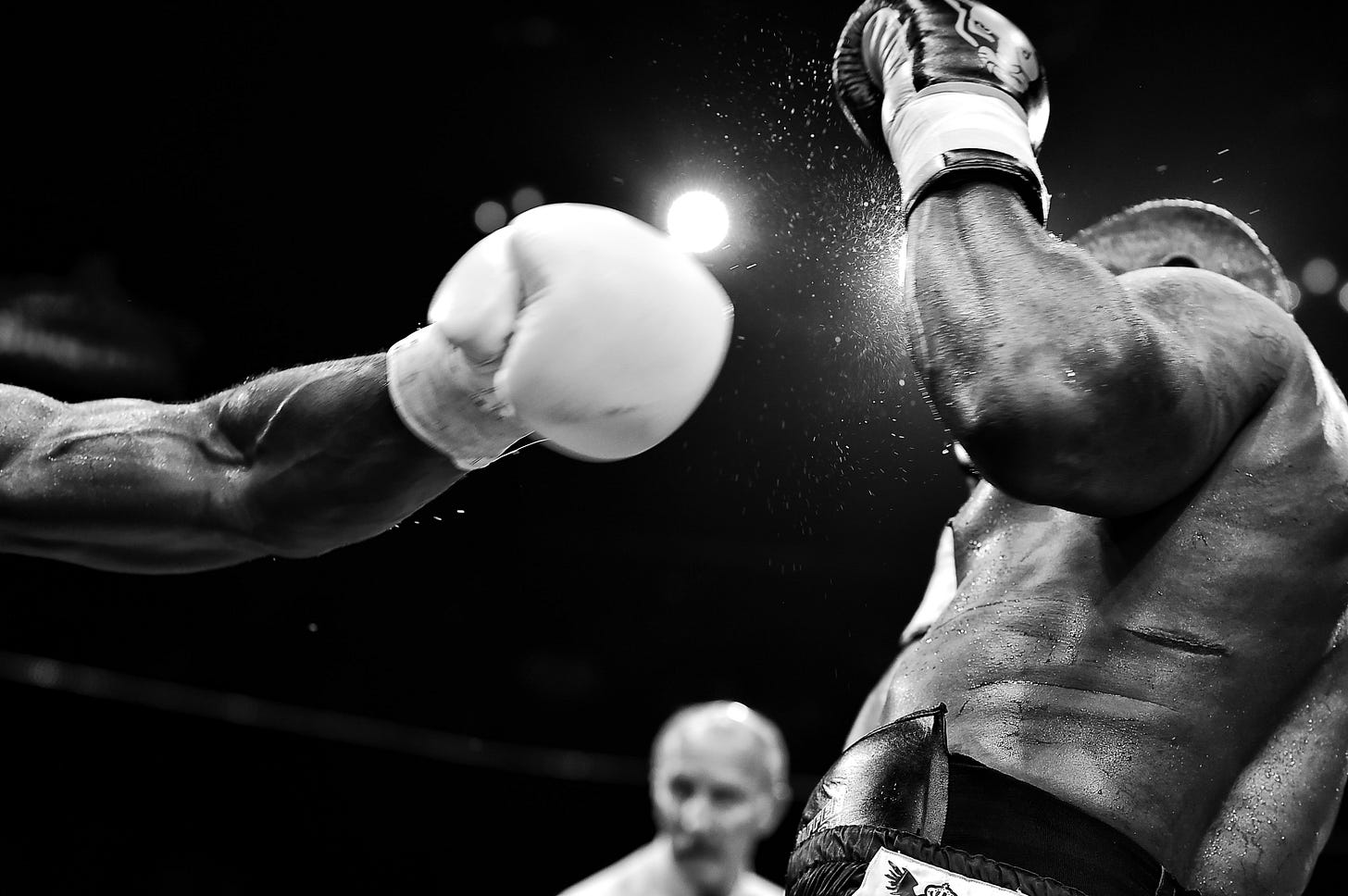Powerful Insights From Mike Tyson’s Playbook To Win.
Do you and your management team have an unquenchable thirst for victory?
Mike Tyson never saw a real rose before his 15th birthday. A product of the streets, he’d been arrested 38 times by age 13. By age 16, Tyson’s mother was dead, his pimp father was a distant memory and his time was spent in the Tryon School for Boys in Johnstown, New York for his prevailing pedigree as a thief and threat to humanity.
The finer things in life escaped every aspect of Mike’s life. Can you imagine not ever seeing the beauty of a rose first hand?
Upon being released from juvenile detention at age 16, Cus D’Amato took Mike under his wing, believing the young thug could be the most accomplished boxer in history. Cus shined a light on what could be and Mike bit. Once on the path to his destiny, Tyson never wavered from his objective. Tyson became Cus D’Amato’s monster, with a rage capable of raining unprecedented pain and suffering.
Underlying a record of gold medals at the 1981 and 1982 Junior Olympic Games and a 1984 Golden Gloves gold medal at the age of 19 was a savage persona defined as bad intentions with the speed of the devil. Clearly a motivated boxer with an iron grip on his purpose, Tyson said he was more terrified of disappointing Cus than losing fights.
At 20 years old Tyson claimed his first professional belt, still holding the record today as the youngest boxer to ever win a heavyweight title. Tyson won his first 19 fights by knockout, 12 in the first round. He was the first heavyweight boxer to simultaneously hold WBA, WBC and IBF titles, and the only boxer to do it in succession. In his thirties, Tyson avenged previous losses and pummeled some of the best in the business. A master at instilling fear, his presence was infused with intimidation. Few fighters ever asked for a rematch. Tyson’s reputation of dispatching tough competitors is legendary.
After a string of personal battles, Tyson fought a series of comeback matches and regained WBA and WBC titles in 1996. In doing so, Tyson joined an elite, tiny group of heavyweight boxers to regain a championship title after losing it that include Muhammad Ali, Floyd Patterson, George Foreman, Evander Holyfield and Tim Witherspoon.
Inducted into boxing’s International Hall of Fame in 2011, Tyson is first on ESPN’s list of “The Hardest Hitters in Heavyweight History” and Sky Sports touts him as, “Perhaps the most ferocious fighter to step into a professional ring.” In 1987 Nintendo released Mike Tyson's Punch Out!!, selling more than 1,000,000 copies. Tyson’s quest to be among the best in boxing’s annals of eternity is realized.
What’s to learn from Mike’s story?
Do you and your management team have an unquenchable thirst to win? What I mean by winning is not your opinion of your business, but the opinion held by your customers and competitors. That’s all that matters.
Think of the businesses you love and those you hate. Your opinion is 100% a function of how their products and business practices make you feel. You couldn’t care less about their financial performance. Yet inside each of those companies, management teams are probably more focused on financial metrics than your opinion.
How wrong is that? It’s because last month’s sales numbers are much easier to capture than present consumer opinion. Smart business captains consider how well products solve customer’s needs before operational forensics.
Taking a page out of Mike Tyson’s play book, you’d have one job. You’d be face to face in the relentless pursuit of your #1 goal, which should be showing clients how their lives can be improved with your products. Your business strategy should have a simple mission statement of, “Everything we do is dedicated to making your life better.” A simple mission, a simple focus. Essential business metrics are downstream from that.
Doubt that works? Think of your favorite restaurant. Wouldn’t it be awesome if your customers wanted your products the way you anticipate your meal when you see it about to be served when dining out? Doing it right means giving preference to KPIs measuring mouth watering expectations for your brand.
Confused operators wander in the weeds, prioritizing operational metrics before customer perceptions.
Through the Tyson lens, the path to business success is clear, just deliver the goods your customers expect. Create a business model that supports that structure. Ask yourself:
Is our mission so clear and simple that every team member can adopt it?
Does our product solve a need customers search for?
Is every business touch point reinforcing why customers should love us?
Winning is independent of business metrics, it lives in the minds of customers.
I love the clarity of purpose that’s so evident in Tyson’s record. He never lost focus of his objective in the ring. His reputation preceded him, his opponents feared him, fans love him.
If you want to win, clarify your purpose and pursue it with passion. Disregard distractions and drive to the goal that you can already taste. Tyson’s crystal ball was clear. If yours isn’t, untangle your priorities and define what it means to win.


